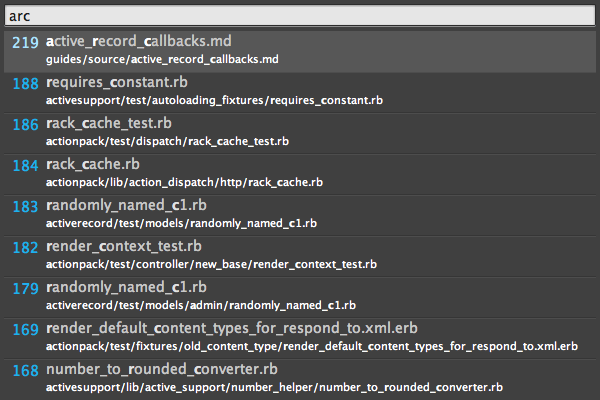A somewhat better auto-complete
Posted on 12 November 2013 by John Pash
Summary
Known by many names; the auto-complete, typeahead, search suggestion or incremental search box is an invaluable feature of any website. An example of it’s use would be to find the latest news about Lance Armstrong. If you Google only the partial words “lan” and “arm” Google will be smart enough to fill in the blanks.

The project
The project I’m about to explain was done for an internal administration menu here at Easyart.

Over the years our admin has grown so large that a simple list of pages was simply too long to navigate. Even after grouping and hiding them under dropdown menus we thought there must be a quicker way of getting to a specific page.
An auto-complete input field would fit the bill.
A typical auto-complete setup
A typical setup might use Twitter’s Typeahead library which does an ajax call to a server which receives the partial search term and returns matching records. The results are displayed in real-time as a list of options and are updated on each keypress.
But there’s a problem
Firstly, you need to know the exact spelling of the words you are after. Many auto-complete libraries search from the beginning of words. If you miszpel your target term, you are out of luck. Good luck to sports writers wanting to find Jhonny Peralta’s batting average on your Dominican Major League baseball blog.
Also, if you have many records that start with the same phrase, and your auto-complete only shows the top 10, how do you find the one that you know is there but is hidden at number 15?
A better way to search
If you’ve ever used the Sublime Text editor you’ll be familiar with the “search anywhere” paradigm. To find a file, normally you would go to the search box and type filename.txt, then hit search, then off it would go to hunt down your file. But with “search anywhere” you can find what you want in a fraction of the time.
For example, to search the Rails source code for the file “active_record_callbacks.rb” you could type:
- “arb” which matches “active_record_callbacks.rb”
- “reccall” which matches “active_record_callbacks.rb”
- “arec” which matches “active_record_callbacks.rb”

There are only two rules:
- All letters must be in the name of the item (obviously)
- Letters must appear in the correct order
So how do we do this in code?
The typical auto-complete setup will take the input and (after sanitising of course) ask the database with a “like” query to find matches.
select * from table_name where description like "%QUERY%";This does an ok job, but it’s not perfect. It’s just not as flexible or fast as it could be.
Our solution
Positive zero-length lookahead assertions of course!
Come back for Part Two of this post for the code.